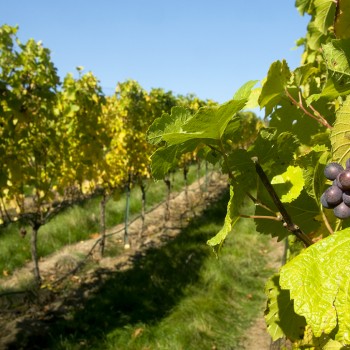Date£º
2015-03-10 14:40 Source£º
thedrinksbusiness Author:
Lauren Eads Translator:
Plant viruses with the potential to cause widespread damage to the UK's growing wine industry have been identified in England for the first time.

The Royal Horticultural Society (RHS) has identified four separate viruses capable of reducing grape yields, delaying fruit ripening resulting in overly-acidic grapes, and at worst wiping out entire crops.
The viruses were discovered by the RHS at its gardens in Wisley, Surrey, and also at the National Fruit Collection in Brogdale, Kent.
The diseases identified include the rupestris stem pitting-associated virus, fleck virus and leafroll-associated virus 1 as well as a virus that causes degeneration transmitted by soil-dwelling nematodes, according to Dr Gerard Clover, head of plant health at the RHS.
While no cases of the unnamed diseases have been confirmed at any commercial vineyards, experts said it is likely they could have spread further and warned producers to be wary.
Writing in an upcoming issue of the trade journal Grape Press, Dr Gerard Clover said: "The discovery of four grapevine viruses not previously reported in the UK during an in initial survey suggests there is no room for complacency. All four viruses are transmitted during routine propagation methods such as grafting. Moreover, the two most damaging viruses are transmitted by mealybugs and scale insects. Not all of these vectors are known to be present in the UK but vectors such as the brown scale and woolly vine scale are widespread in both protected and unprotected environments. These viruses have the potential to spread and cause damage to the UK's developing grapevine industry.
Dr Clover urged commercial vineyards to be aware of the risk and to only use plants certified as being virus-free.
He added: "These are the first reports of viruses infecting grapevines in the UK. There seems to have been limited monitoring or testing for viruses in UK vineyards and therefore it is difficult to speculate on the national distribution of these viruses. As part of our study we visited commercial vineyards in Suffolk and Surrey, and the National Fruit Collection in Faversham, Kent. Grapevines in these locations did not show obvious symptoms of virus infection."
It comes at a time of rapid growth within the English wine industry, with the The Department for Food and Rural Affairs predicting that global retail sales of English wine could hit 100m pounds this year.
While last week it was announced that a group of wineries in Sussex were making a bid to the EU to gain PDO status for the region's wines, similar to that of Champagne or Prosseco.